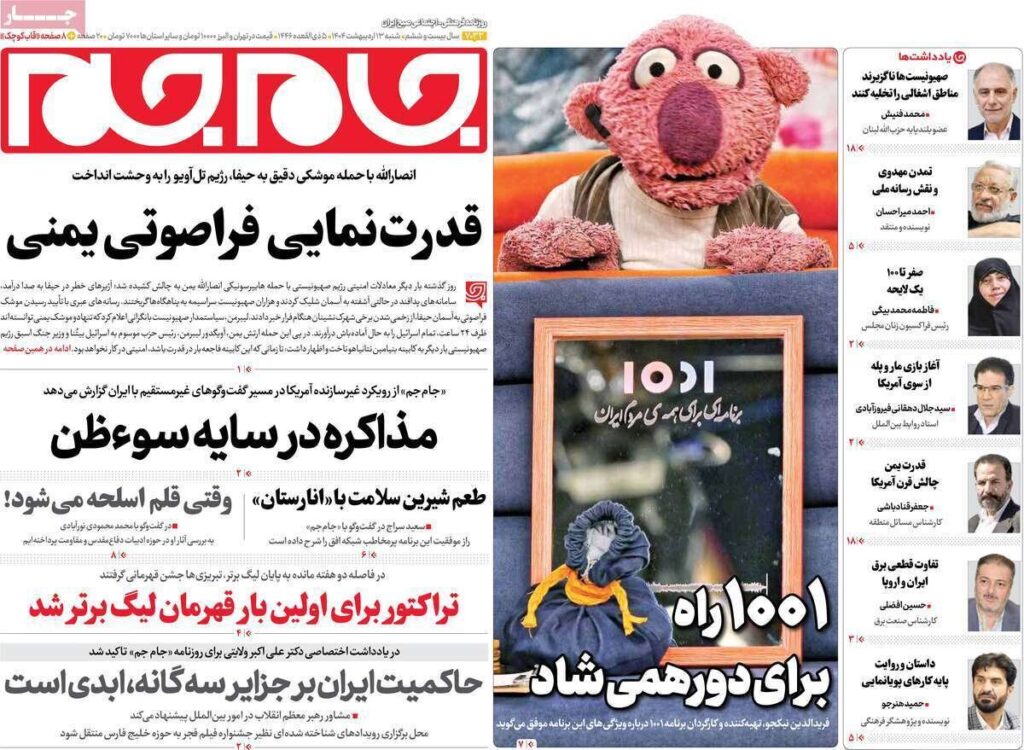Tehran-Jam-Jam wrote about the exclusion of Europeans from nuclear negotiations: after the launch of new talks between Tehran and Washington on Iran’s nuclear issue, the removal of European parties from negotiations took strong attention.
Since the indirect consultations between Iran and the US, European troika has felt that on many important global issues, the US has sidelined them and that their international interests have not been taken into consideration. Therefore, during negotiations, they were able to try to influence the negotiation process by expressing various opinions, first securing political and security considerations, and then continuing to assert their position as key players shaping international mechanisms. European diplomats have shown that despite initial hesitation, E3 determined that it was in their interest to maintain dialogue with Iran and reaffirm their stance on the potential new nuclear deal, according to Reuters. (They took such a stand after saying that Iran would be holding discussions with the UK, France and Germany on Friday (May 2) in Rome, but just before scheduled negotiations with the US. However, the consultations were postponed without setting a specific date).
Siasat-e-Rooz: If the lecture is suspended, the US will take responsibility
Siasat-e-Rooz dedicated the editorial to delays in consultations with Iran, saying that the postponement of indirect consultations followed a request from the US. Trump seems unpredictable in the way he suddenly adopts a new position and announces a new decision. Given his personality, stable and lasting results cannot be achieved. The leader of the Islamic Revolution was well aware of the Americans’ actions, which is why he clearly stated that the United States could not be trusted. Many conflicts within the United States have led to serious disagreements about Iran and the US consultations. Of course, the role of the Zionist regime should be taken seriously, especially as Netanyahu works intensively to cancel consultations. Given the “conditions” proposed by the US for negotiations, the US would be the main perpetrator if negotiations were stopped. We will enrich uranium and import only the enriched uranium required for the reactor. )
Arman-e-Melli: Why is Trump imposing oil sanctions on Iran during negotiations?
In an interview with political expert and former diplomat Saba Zangene, Arman-e-Melli investigated Trump’s dual behavior. He said: There is a deep change in the United States regarding foreign policy. The announcement of oil sanctions against Iran shows that the US president’s contradictions are still working. That is the continuation of the greatest sanctions. Some US appears to be asking for such measures against Iran as well. Of course, it should be considered that these sanctions are primarily targeted at buyers of Iranian products, primarily involving China and other countries. In other words, these sanctions do not only target Iran, which should be considered in several aspects. First, it is a multilateral movement against Beijing, which has long been pursued by the United States. The second reason is that Trump is trying to monopolize the US market, and Americans are trying to expand their business activities by eliminating Iranian products and making China rely on the US.
Donya-e-eqtesad: The importance of the Persian Gulf in international political and economics
Donya-e-Eqtesad writes about the importance of the Persian Gulf in the international economy. According to this paper, the reliance of major powers on the energy wealth of the Persian Gulf places the Persian Gulf at the heart of its development. The strategic importance of the Persian Gulf stems from its enormous energy resources and its function as a key transportation hub for the global energy market. The evolving role of the Persian Gulf Cooperation Council (GCC) countries of Saudi Arabia, the United Arab Emirates and Qatar countries has positioned them as influential players in international affairs. Local leaders are changing their approach from traditional neighbourship to broader economic and diplomatic engagement. This includes mediation efforts between Iran and the US, as well as initiatives aimed at resolving regional conflicts through macroeconomic projects. Enhanced cooperation between Iran and its neighbors in the Southern Persian Gulf could pave the way for a new economic and diplomatic framework.

